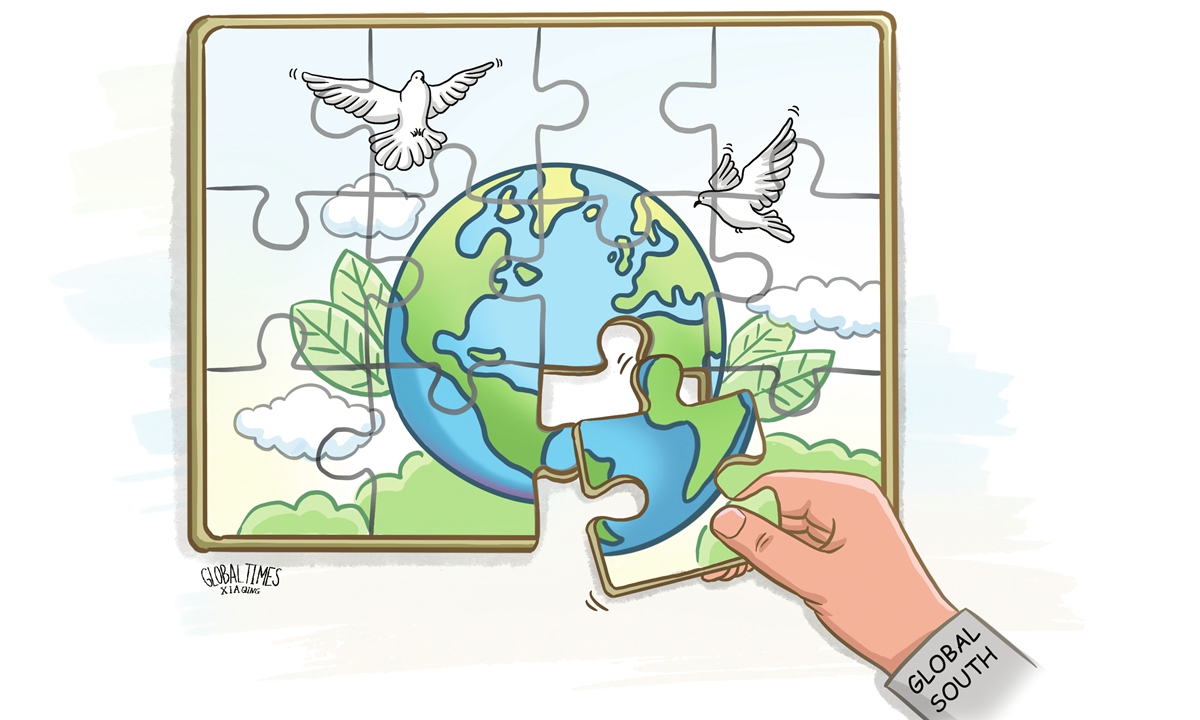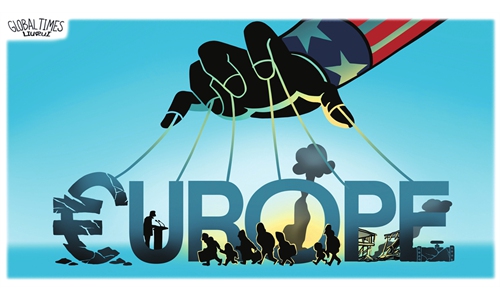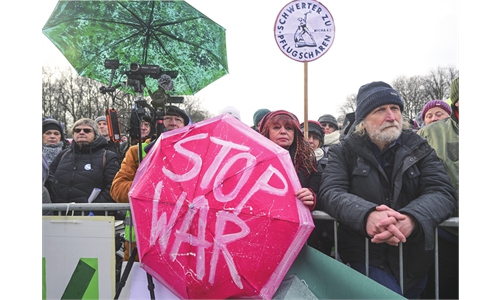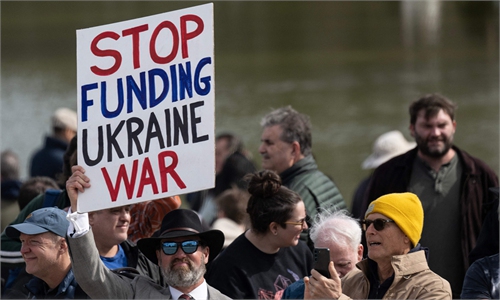EU needs to acknowledge the end of Global South compliance with Europe-centered world order

Illustration: Xia Qing/GT
Josep Borrell, the European Union's high representative for foreign affairs, recently acknowledged that the "era of Western dominance has indeed definitively ended." He wrote this in a blog post on the official website of the EU's diplomatic service on February 25.As the Russia-Ukraine conflict enters its third year, Borrell's statement at this time essentially acknowledges the failure of the Western strategic goal to maintain its dominant and hegemonic position in the international order through the conflict. Since the onset of the Russia-Ukraine conflict, the West had hoped to leverage it to strengthen internal cohesion and make Global South countries adhere to its strategic calls. However, as the Global South maintains its independent stance in the Russia-Ukraine conflict, and as the conflict increasingly binds Europe, this original goal has not been achieved.
In particular, the Israel-Palestine conflict has dealt a severe blow to this goal, revealing the clear double standards of the West and causing dissatisfaction among many Global South countries. At the Third EU Indo-Pacific Ministerial Forum held on February 2, senior officials from Global South countries attending the meeting criticized the West for its "double standards," adopting drastically different policies toward the Russia-Ukraine and Israel-Palestine conflicts, and failing to consistently emphasize respect for international law. Many foreign media outlets described this forum, which left the EU embarrassed, as "EU grilled" and "EU's courtship of Indo-Pacific gets cold shoulder." This significantly undermined the Western narrative on the Russia-Ukraine conflict and highlighted the political independence of Global South countries, Sun Keqin, a research fellow at the China Institutes of Contemporary International Relations, told the Global Times.
In recent years, Western countries have shown a notable increase in attention toward the Global South. Sun believes that one important reason for this is that Western nations recognize that the outcome of the power struggle between the West and countries it deems "enemies," such as China and Russia, largely lies in the political stance of the Global South. Therefore, they are consciously seeking to influence and court Global South countries. This also indicates that the West has not departed from its traditional mentality of camp confrontation. Europe's true objective is to uphold Western dominance by wooing Global South nations, ensuring that they do not pose a threat to the West strategically while politically aligning with Western interests to aid in the confrontation and competition against China and Russia. However, this objective has evidently failed.
The end of the era of Western dominance is a fact, yet Europe still adheres to its Eurocentrism, full of "arrogance and prejudice." Borrell said that the Russia-Ukraine and Israel-Palestine conflicts have "increased tremendously the political space" of the Global South vis-a-vis the EU, and accused Russia of "really taking good advantages" of their mistakes to blame "double standards." Europe has not yet realized that the so-called situation of "the rest against the West" that it needs to avoid does not stem from Russia's "battle of narrative," but rather from the fact that the days when the Global South was forced to comply with the Europe-centered world order are gone.
The Global South seeks peace and equality, while Europe brings conflict and control. The Global South seeks win-win cooperation and economic development, while Europe brings zero-sum competition and division. This is fundamentally different from the interests of developing countries. On one hand, the West insists on the so-called "rules-based international order," which is actually rules made according to its own interests and political correctness. From the perspective of the Global South, such an order aimed at maintaining Western dominance is undoubtedly hypocritical. On the other hand, under the Russia-Ukraine conflict, apart from the US profiting from arms sales, the entire European economy has been sluggish, a fact that is evident to the entire world, including the Global South. The Global South certainly does not want to sacrifice its own development to align with the West.
Two years have passed, and Europe is still locked up in the Ukraine crisis. Europe is declining but still arrogant. Instead of reflecting on its own shortcomings and timely extricating itself from the quagmire, Europe repeatedly attributes its decline and the estrangement from the Global South to external factors. For the EU, returning to the path of peace and development is the solution to its estrangement with Global South countries.
The author is a reporter with the Global Times. opinion@globaltimes.com.cn



